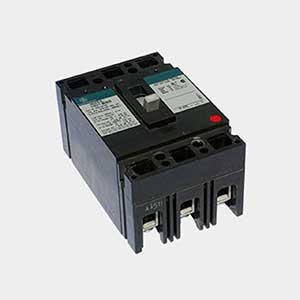Unraveling the Mysteries of Industrial Circuit Breakers
Industrial circuit breakers play a crucial role in maintaining electrical safety and preventing electrical hazards in industrial settings. From commercial circuit breakers to electrical power transformers, understanding these essential components is vital for ensuring the reliability and efficiency of electrical systems. In this comprehensive guide, we’ll demystify industrial circuit breakers and explore everything you need to know about their function, types, and importance in industrial applications.
1. Understanding Industrial Circuit Breakers
Industrial circuit breakers are electrical devices designed to protect electrical circuits from overloads, short circuits, and other electrical faults. They function by automatically interrupting the flow of electricity when abnormal conditions are detected, thereby preventing damage to equipment and minimizing the risk of electrical fires.
2. Types of Industrial Circuit Breakers
There are several types of industrial circuit breakers, each designed for specific applications and environments:
Commercial Circuit Breakers: These circuit breakers are commonly used in commercial and industrial buildings to protect electrical circuits from overloads and short circuits.
Electrical Motor Controls: Motor control circuit breakers are designed to protect motors and motor circuits from electrical faults and overload conditions.
Industrial Motor Controls: These circuit breakers are used in industrial settings to control and protect motor-driven equipment, such as pumps, compressors, and conveyors.
Electrical Power Transformers: Power transformer circuit breakers are used to protect electrical power transformers from overloads and short circuits.
3. Importance of Industrial Circuit Breakers
Industrial circuit breakers are essential for maintaining electrical safety and preventing costly downtime in industrial facilities. They help protect equipment, machinery, and personnel from the dangers of electrical faults, ensuring continuous operation and productivity.
4. Key Features to Consider
When selecting industrial circuit breakers for your facility, consider the following key features:
Current Rating: Choose circuit breakers with appropriate current ratings to match the electrical load requirements of your equipment and machinery.
Voltage Rating: Ensure that the circuit breakers are rated for the voltage levels present in your facility to prevent damage and ensure compatibility.
Trip Curve: Select circuit breakers with trip curves that are suited to the specific characteristics of your electrical loads, such as motor starting currents.
Short Circuit Protection: Look for circuit breakers with built-in short circuit protection features to minimize the risk of electrical faults and damage to equipment.
Conclusion
Industrial circuit breakers are indispensable components of electrical systems in industrial settings, providing crucial protection against electrical faults and ensuring the safety and reliability of electrical installations. By understanding the function, types, and importance of industrial circuit breakers, as well as key features to consider when selecting them, you can effectively safeguard your facility against electrical hazards and maintain uninterrupted operation. So, demystify industrial circuit breakers and empower your facility with enhanced electrical safety and reliability.



